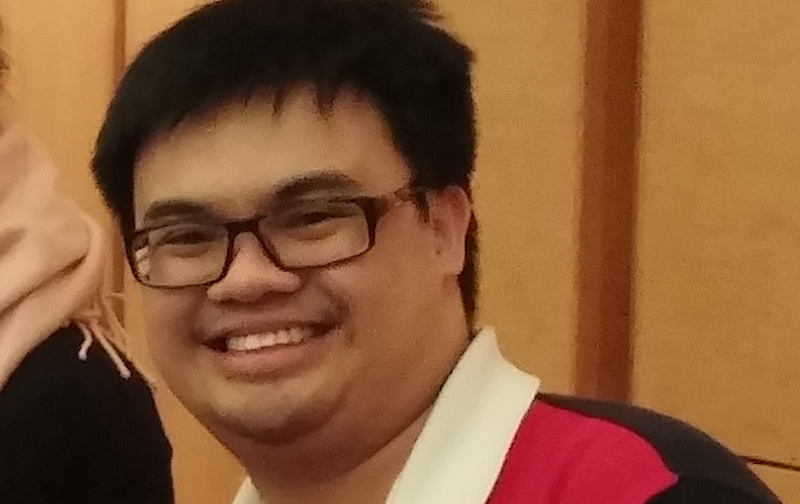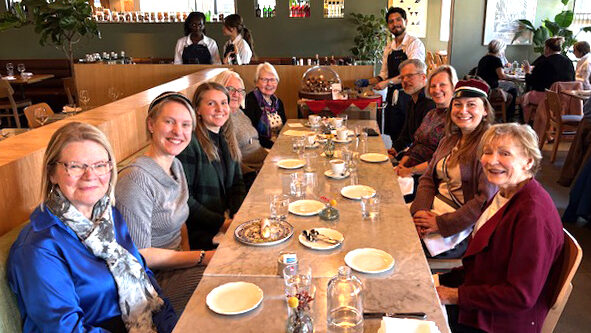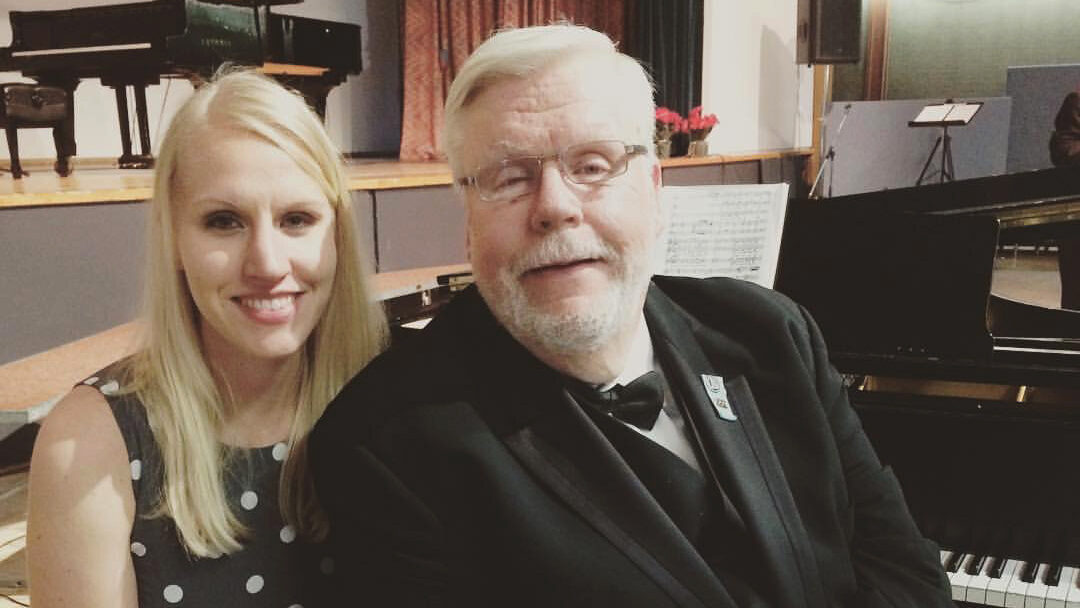I recently spoke with Karl to get the scoop on his experiences so far and to learn more about his background leading up to his tenure at VEMU/ESC.
How long have you been at VEMU, and what kind of things have you learned about Estonia and Estonians during your time there?
“I have been volunteering at VEMU for more than three months now. From my lunch break conversations with Piret Noorhani, my mentor, I have learned a lot about the Estonian language and Estonian food. I once asked Piret if she knew any good Estonian poets, and that led to me learning about many figures from Estonian literature. During those lunch breaks, Piret would also tell anecdotes about life in Estonia under Soviet occupation. These stories were fascinating to me. They were glimpses into everyday life that are more complex than the west’s often caricatured perspective of life in the Soviet Union.
I also learned a lot about Estonian expatriates in my work. As I was looking through objects from past ESTO festivals, I learned about how Estonians abroad wanted to express and preserve their culture and heritage free of oppression outside of the Soviet Union, and how the festivals abroad were part of a larger struggle to regain independence from the USSR.”
What did you know and think about Estonia and/or the Baltic nations before you began working at VEMU?
“Whenever I talked about Estonia to people I would say that it's the country where Skype was created, or where Arvo Pärt is from, depending on how much they knew. I would also mention facts, such as how Estonians have a sport called kiiking that involves standing on a swing and maintaining the momentum while you go around. Or that Estonia (and the other Baltic states) re-gained their independence from the Soviet Union through singing and dancing. Or how Estonia is like the Japan of Europe in terms of technological advancement and application of technology into everyday life.
I think that I had good basic knowledge of Estonia and the other Baltic countries prior to working here. I knew the basic framework of the history, as well as facts and key issues concerning Estonian society. I could recognize the language. I was aware of how it relates to other European countries, since I studied European Studies as my undergraduate major back in the Philippines. I knew that Estonia has a rich tradition of folk singing and folk dancing. In fact, I'm exposed to a bit of Estonian media, mostly movies and TV shows. I am a Eurovision fan, and I recognize how much effort Estonia brings into its entries every year. Being a fan of Eurovision working at VEMU is like being a K-pop (Korean pop) fan working for the Korean consulate, while having knowledge of the country beyond K-pop.”
What are your interests overall?
“My main interest is history. Currently I am reading a book by professor Andres Kasekamp about the history of the Baltic states. I want to learn more about the history of these countries, especially prior to the Tsarist Russian occupation, since that period is so hard to keep track of, because of the shifting borders. I love geography as well. Beyond this, I like reading books, listening to music, film, and playing video games.”
Do you speak/read languages in addition to English?
“I speak English fluently, as well as my mother tongue, Tagalog. I have a strong foundational knowledge of German, which I learned during my time in university, as part of my major. I can only muster the most basic Estonian phrases. I can pronounce Estonian words when I read them, but I wouldn’t understand them!”
Lastly, what are your future plans and dreams?
“I have a two part plan for my future here in Canada. My main plan is to study for a Master’s in history, preferably at the University of Toronto. This has been my main goal since I first arrived in Canada. With this in mind, I am working to improve my application.
Following this, I would like to work in the museum field, preferably in collections and archive management. That is the reason for taking the museum studies program that I am in right now, and also why it's ideal to be doing the work at VEMU that I am doing right now!”
Karl has been a valuable addition to the VEMU/ESC team, and we hope that he will visit again when his volunteer period is over!
This interview has been edited and condensed.
Vincent Teetsov, Toronto



